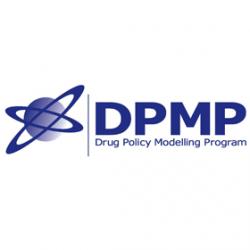The National Drug and Alcohol Research Centre welcomes scholarly, rigorous debate on the matter of drug law reform in Australia. The Sydney Morning Herald's 21 May cover story (‘Two thirds opposed to easing of drug laws’) engages with this very topic. To increase clarity and understanding of the terms 'decriminalisation' and 'legalisation' and what Australians think of both policy options, we present below the latest bulletin from the Drug Policy and Modelling Program (DPMP).
Analysis by DPMP of the 2010 National Drug Strategy Household Survey indicates most Australians distinguish between decriminalisation and legalisation measures, and favour pragmatic and humane approaches for those charged with personal use and possession of illicit drugs.
What does the research evidence tell us about what Australians think about the legal status of drugs?
Introduction
This bulletin summarises data from a nationally representative survey of Australians[1] on the legal status of drugs. We draw an important distinction between what Australians think about “legalisation” versus “decriminalisation”, and what Australians think about different types of drugs (four drugs are compared: cannabis, ecstasy, heroin and meth/amphetamine).
Key points
- More than half of the Australian population agree with decriminalisation options for the personal use of cannabis, heroin and methamphetamine. This does not mean they support decriminalising the sale and supply of these drugs.
- Less than one quarter of Australians support the legalisation of cannabis, heroin, ecstasy, and methamphetamine.
- Australians do make a distinction between legalisation and decriminalisation options.
Legalisation of drugs
Australians are asked whether they think that the personal use of drugs should be made legal. This question effectively asks people to think about drug use only (not to think about the sale or supply of drugs).
|
Males |
Females |
Persons |
|
|
Cannabis |
|
||
|
Support |
25.3% |
19.5% |
22.3% |
|
Ecstasy |
|
||
|
Support |
7.3% |
5.1% |
6.2% |
|
Heroin |
|
||
|
Support |
6.1% |
4.9% |
5.5% |
|
Meth/amphetamine |
|
||
|
Support |
5.0% |
4.2% |
4.6% |
Footnote: There are some people who don’t know whether they support legalisation for personal use or not. These figures ranged between 7.9% don’t know for cannabis to 8.1% don’t know for heroin.
- 51% of Australians oppose the legalisation of cannabis for personal use.
- More than 80% of Australians oppose the legalisation of heroin and methamphetamine for personal use.
- More than 75% of Australians oppose the legalisation of ecstasy for personal use.
Decriminalisation of drugs
We define decriminalisation as a reduction of legal penalties. This can be done by either changing them from criminal to civil penalties, such as fines (as has occurred in some Australian states such as SA, ACT and NT for cannabis), or by diverting drug use offenders away from a criminal conviction and into education or treatment (known as ‘diversion’, and which is applied across Australia). Decriminalisation applies to drug use and possession offences, not to the sale or supply of drugs.
When asked “What single action best describes what you think should happen to anyone found in possession of small quantities of cannabis/ecstasy/heroin/methamphetamine?” respondents can select from a range of responses:
- Decriminalisation options include: no action; caution/warning; referral to education; referral to treatment; and small fine ($200).
- Criminalisation options include substantial fine ($1000); community service; weekend detention; prison; or other.
The table below shows the percentage of Australians who support the decriminalisation options for each drug:
|
Males |
Females |
Persons |
|
|
Cannabis |
|
||
|
Decriminalisation support |
72.3% |
73% |
72.7% |
|
Ecstasy |
|
||
|
Decriminalisation support |
50% |
53.7% |
51.9% |
|
Heroin |
|
||
|
Decriminalisation support |
42.7% |
49.4% |
46% |
|
Meth/amphetamine |
|
||
|
Decriminalisation support |
44.1% |
50.1% |
47.1% |
Footnote: Some people don’t know what they think about decriminalisation. This represented 4% of the sample
- The vast majority of Australians support the decriminalisation of cannabis use
- Half of all Australians support the decriminalisation of ecstasy use.
-
Just under half of Australians support the decriminalisation of heroin and methamphetamine use.
[1]These data are re-analyses of the Australian Institute of Health and Welfare’s National Drug Strategy Household Survey. In 2010, the total sample size was 26,648. The survey uses a multistage, stratified area random sample design. Data have been weighted to represent the Australian population.
The DPMP Bulletin Series is an accessible short snapshot on key drug policy issues and research. The series includes policy commentaries, summaries of DPMP research and concise reference documents that compile information from multiple sources. They are accessible through the DPMP website.


